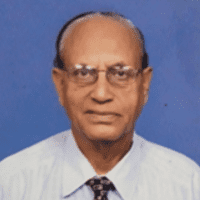

It is an established fact that the Central Government has been paying 50 percent of the last pay drawn, after fulfilling required conditions, as pension to their employees who retire from service on attaining the age of superannuation before 1st April 2004. It was at the age of 55 years, gradually raised to 58 years, extending to 60 or 62 years in specific cadres by Central / State Governments. At the same time, it was felt that in the long run, the existing pension structure was highly disadvantageous to pensioners as the pension for them was not revised as and when the pay scales for in service Government employees were revised. Keeping in mind the fact that money has been reducing its value very fast year after year with the addition of old age problems of senior citizens, a frequent upward revision of pension was essential and inescapable.
Not caring for pensioners’ requests/ demands for revision of their pension the Government deliberately omitted it in the terms of reference of I, II and III Central Pay Commission (CPC). Not finding any positive response from the Government a bold step for justice was taken by one NAKARA after he retired as Financial Advisor to the Ministry Of Defence. He filed a writ petition in Supreme Court (SC) for revision of pension and payment from retrospective effect. The Government of India (GOI) was compelled to ask IV CPC to take up the problems related to CG retirees also with its terms of reference.
The landmark judgement delivered by the Constitution Bench of SC, headed by the then Chief Justice (CJ) Y.V.Chandrachud on 17th December 1982 is the beginning of the evolution of pension structure for the past pensioners and in the history of pensioners movement. It gave the pensioners a new lease of life. In the judgement the SC has affirmed that:
“State’s obligation to provide security in old age, as an escape from undeserved want, is recognised. As a first step, pension is treated not only as a reward for past services but with a view of helping the employee to avoid destitution in old age. The QUID PRO QUO was that when the employee was physically and mentally alert, he rendered the best unto the master expecting the master to look after him in the evening of his life. A pension on retirement therefore exists solely for the purpose of providing benefits. Pension is not the nature of alms being doled to beggars. Pension is therefore deferred wages. Pension is their statutory, inalienable and legally enforceable right and it has been earned by the sweat of their brow. The senior citizens need to be treated with dignity and courtesy befitting their age.”
The court, therefore, held that pension is not a bounty nor a matter of grace depending upon the sweet will of the employer. It is not an ex-gratia payment, but a payment for past services rendered. It is a social welfare measure , rendering socio economic justice to those who in the heydays of their life, ceaselessly toiled for their employers on an assurance that in their old age , they would not be left in lurch, The court finally decided in favour of pensioners dictating the following. “A pension scheme consistent with available resources should therefore provide pension so that the pensioner should be able to live (i) free from want, with decency, independence and self respect and (ii) at a standard of living equivalent at the pre-retirement level.”
Subsequently, the V CPC constituted in April 1994 with justice Ratnavel Pandian as
Chairman stressed that:
“Pension is not the nature of alms being doled out to beggars. The senior citizens need to be treated with dignity and courtesy befitting their age. Pension is their statutory, inalienable and legally enforceable right and has been earned by the sweat of their brow. As such it should be fixed, revised, modified and changed in ways, not entirely dissimilar to the salaries granted to the serving employees.”
The sudden twisted decision of the Government to dispense with the pension scheme itself through a bill passed in the Parliament and implemented from 1st April 2004 came as a rude shock to the then newly appointed Government employees. However, the employees appointed earlier that cut off date were not affected and continued to draw pensions under the OLD PENSION SCHEME (OPS) with Government funds. A new pension scheme with 10% contribution of employees’ salaries under the name NEW PENSION SCHEME (NPS) / NATIONAL PENSION SCHEME was introduced which was not at all beneficial in any way to employees and much against the observations made by SC and the Chairman of V CPC way back in 1982 and 1994 respectively. Moreover refunding the highly diluted money with some additional benefits is beneficial to pensioners to maintain dignity, a reasonably good standard of living, and independence in the evenings of their lives.
The employees under the NPS have been pleading with the Government to revert back to OPS. While a few State Governments have responded positively, the Central Government seems to be not in its favour because of huge recurring expenditure involved costing heavily the ex- chequer. Consider it as a social welfare scheme to provide socio economic justice to senior citizens who are in the evenings of their life facing old age problems clubbed with ever increasing prices of essentials of daily life.
Dr. Dhrubash Karan Mathur, Rtd. Professor, Osmania University, Former Principal, Nizam College (Autonomous)



